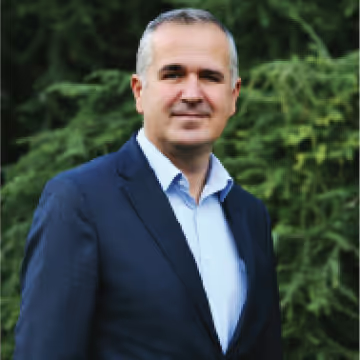How Political Turmoil Impacts Residency Program Eligibility and Investment Requirements
In an increasingly volatile world, political turmoil is reshaping the landscape of residency by investment (RBI) programs.
These programs, once viewed as stable pathways for global mobility and financial security, are now evolving rapidly in response to geopolitical crises, economic instability, and shifting demographics.
Understanding how political instability influences residency eligibility and investment thresholds is crucial for investors and high-net-worth individuals (HNWIs) navigating these programs.
Political Turmoil and Residency
Political instability directly affects the rules and attractiveness of RBI programs. Governments worldwide adjust their policies to safeguard national security, mitigate economic risks, and adapt to changing global dynamics.
For example, following the Russian invasion of Ukraine, several nations imposed stricter eligibility criteria for Russian and Belarusian applicants. Malta went a step further, suspending its citizenship program for these nationals entirely.
These measures highlight how political events can trigger swift regulatory changes, complicating the landscape for potential applicants.
Trump’s Impact on Second Residency
The Trump administration’s policies brought significant attention to the concept of second residencies. Stricter immigration rules, escalating tax concerns, and a polarized political environment led many U.S. citizens to explore RBI options abroad.
Countries like Portugal and the Caribbean nations experienced increased interest from Americans seeking stability and global mobility.
The Trump era underscored how domestic policies in major economies could influence global demand for alternative residencies. With Trump’s re-election, we are as yet unclear to the full impacts of his second presidency with this regard.
Residency Changes Under Trump
During Trump’s presidency, countries offering RBI programs tailored their offerings to attract U.S. applicants. Portugal’s Golden Visa program, for instance, gained traction as an attractive option for Americans.
Caribbean nations, such as St. Kitts and Nevis, streamlined their application processes and offered limited-time discounts to capitalize on this demand. These changes demonstrate how global residency programs can respond opportunistically to political climates in major markets.
Residency Shifts Due to Political Crises
Geopolitical crises often reshape the demographics of RBI applicants. Wars, economic collapses, and authoritarian regimes push individuals from unstable regions to seek refuge in stable democracies.
For instance, during the Ukraine war, demand surged for European residency programs offering safety and security.
Similarly, Brexit prompted many UK nationals to explore residencies within the EU to retain mobility and economic advantages. These shifts reflect the growing importance of stable residency options amid global uncertainties.
Caribbean Residency and Political Crises
The Caribbean has emerged as a key player in the RBI market, particularly during times of political turmoil.
Nations like Dominica and Antigua and Barbuda have adjusted their investment requirements offering options from USD$ 260,000. Political crises have further enhanced the appeal of Caribbean programs, which are seen as affordable, flexible, and accessible.
These programs provide a safe haven for individuals from unstable regions while bolstering the economies of host nations.
Stricter Compliance and Program Evolution
Amid growing concerns over money laundering and security risks, RBI programs are tightening compliance requirements. Enhanced due diligence processes, stricter source-of-funds verifications, and the exclusion of applicants from high-risk nations are becoming standard practices.
Recommendations from the Financial Action Task Force (FATF) have further driven these changes, ensuring that RBI programs align with international standards and remain credible in an increasingly scrutinized market.
Closing Thoughts
Political turmoil is a powerful driver of change in the residency by investment landscape. From shifting eligibility criteria to evolving investment thresholds, these programs are constantly adapting to global challenges.
For investors and HNWIs, staying informed about geopolitical trends and their impact on residency options is essential. By considering both risks and opportunities, individuals can secure residencies that provide stability, mobility, and long-term value.
As the global political landscape continues to shift, the role of RBI programs in offering a pathway to security and opportunity remains vital.
The future of these programs will depend on how they balance national interests with the demands of an increasingly globalized world.























